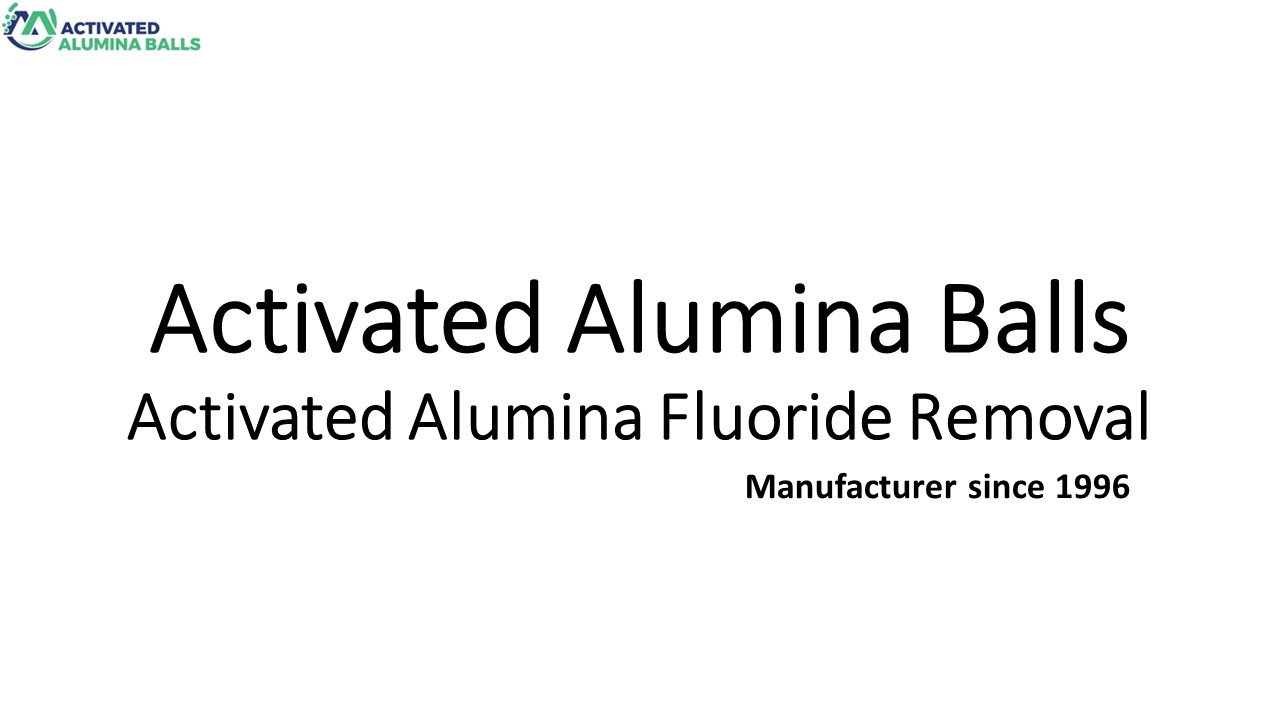Activated Alumina Fluoride Removal - PowerPoint PPT Presentation
Title:
Activated Alumina Fluoride Removal
Description:
Alsorb-F a true grade of activated alumina has long been considered the best technology for fluoride removal from aqueous solutions. These can be used to treat potable water for household and municipal units as well as a great solution for wastewater streams for removal of fluoride and arsenic. The adsorptive process is simply requiring a flow rate across the media with a minimum of five minutes empty bed contact time. – PowerPoint PPT presentation
Number of Views:5
Title: Activated Alumina Fluoride Removal
1
Activated Alumina BallsActivated Alumina
Fluoride Removal
- Manufacturer since 1996
2
Activated Alumina Balls For Arsenic Fluoride
Removal
Alsorb-F a true grade of activated alumina has
long been considered the best technology for
fluoride removal from aqueous solutions.
These can be used to treat potable water for
household and municipal units as well as a great
solution for wastewater streams for removal of
fluoride and arsenic. The adsorptive process is
simply requiring a flow rate across the media
with a minimum of five minutes empty bed contact
time. Alsorb-F is an aluminum oxide that is
highly porous and exhibits high surface area. The
crystal structure of alumina contains cation
lattice discontinuities giving rise to localized
areas of positive charge this makes alumina
attract various anionic species. Our alumina
balls have a high preference for fluoride
compared to other anionic species and hence is an
attractive adsorbent. It also does not shrink,
swell, soften nor disintegrate when immersed in
water.
3
The activated alumina was proposed for the first
tune fir de fluoridation of water for domestic
use in the 1930s. Then, the activated alumina has
become popular de-fluoridation method. The
minimum adsorption capacity of Alsorb-F for
fluoride is found to be 2.85mg /g of alumina. The
activated alumina balls used as a fluoride filter
arsenic can be regenerated by a solution of
sodium hydroxide (NaOH), hydrochloric acid (HCL),
sulfuric acid (H2SO4), and alum (KAL(SO4).
4
The effectiveness of alumina balls for arsenic
fluoride removal is the media to adsorb fluoride
is affected by a number of factors.
- Influent Fluoride or Arsenic Level
- The capacity is bound by basic adsorption theory,
the greater the concentration of impurity, the
higher adsorptive capacity of the media. - pH Level
- The pH level also has a large impact on the
ability to adsorb F. The optimum pH level should
be from 5.5 to 6.5. Adjustment is easily
accomplished with the same solutions as
regeneration. - Contact Time
- 5 minute Empty Bed Contact Time achieves the best
balance of adsorption capacity and capital cost. - Competing Ions
- Fluoride and Arsenic are strongly attracted to
activated alumina leaving few competing water
contaminants. Silica can reduce the adsorption
capacity, although silica effect is limited when
pH adjustment is employed. Systems, where silica
levels are higher than 30 ppm, may require more
frequent and aggressive regeneration. - Preconditioning Activated Alumina
- The capacity of the activated alumina is greatly
enhanced after conditioning. The first
regeneration act as a conditioning step. Note
that the first treatment of non-preconditioned AA
will yield a capacity of 30 less than subsequent
cycles after regeneration.
5
Thank you
- For more information contact or visit us 91
9879203377 - activatedaluminaballs_at_gmail.com
https//www.activatedaluminaballs.com































